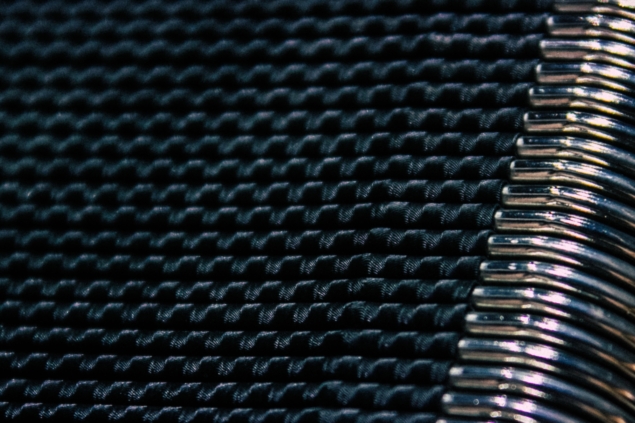Yannis Kyriakides. Ein Schemen
- Date:
21 Feb 2024
- Age restrictions
- 12+
The Russian premiere of one of the central works by the Dutch composer Yannis Kyriakides.
Ein Schemen
(A Shadow, 2017, Russian premiere)
for choir, harp and electronic instruments
In 2017, Yannis Kyriakides rewrote Ein deutsches Requiem by Johannes Brahms for choir, harp and electronic instruments—line by line, section by section. The duration of Ein Schemen and its seven-movement form fully correspond to the structure of the original, written in 1865–1869 to verses from Luther’s translation of the Bible.
Performed by
Intrada vocal ensemble
Ekaterina Antonenko
conductor and artistic director
Luiza Mintsaeva
harp
Sergei Kochetkov
sound engineer

Photo: Anya Todich
Extracting individual elements from the score of Ein deutsches Requiem, the composer extends them in time and transforms into soundscapes where the listener may roam freely, following Brahms. The work’s title echoes a line in the third movement of Ein deutsches Requiem: Sie gehen daher wie ein Schemen—"Surely every man walks about like a shadow" (Psalms 39:6). Ein Schemen means a shadow, vision, phantom: Kyriakides notes that this word precisely reflects the nature of the work—balancing between the worlds of the living and the dead, existing in the shadow of Brahms and filled with his music as a divine presence.
Ein Schemen is one of Kyriakides’ central works of recent years. Another important piece, the opera Ask Ada (2021), was performed at the Playhouse of
Yannis Kyriakides (b. 1969, Limassol) is a composer, multimedia artist, and professor at the Royal Conservatoire The Hague. Kyriakides has lived in the Netherlands since 1992. His music is regularly performed at major festivals and featured in the concert programmes of leading contemporary music ensembles in Europe and in Russia. Kyriakides’s work reconsiders musical communication as such, breaking stereotypes of listeners’ and performers’ perception, and exploring new connections between words and sound through computer technology. In his concert works and sound installations, Kyriakides uses coding systems to convert verbal texts into musical canvases and synthesise imaginary or inner voices.
The Intrada vocal ensemble was founded in 2006 by Ekaterina Antonenko, a graduate of the Moscow Conservatory. It has taken part in many high-profile projects in Russia and abroad, and has proved its merit as one of the most versatile and professional vocal ensembles of our days. In 2019 and 2021, it was voted Ensemble of the Year by the newspaper Muzikalnoe Obozrenie. Intrada regularly collaborates with leading ensembles and musicians in Russia and abroad, notably the Moscow Soloists chamber orchestra and Yuri Bashmet, the Svetlanov Symphony Orchestra and Vladimir Jurowski, the Russian National Orchestra and Mikhail Pletnev, Le Poème Harmonique and Vincent Dumestre, Il Giardino Armonico and Giovanni Antonini, The Tallis Scholars and Peter Phillips, VOCES8, I Fagiolini and Robert Hollingworth, the Orchestra of the Age of Enlightenment, Frieder Bernius, Stephen Layton, Hans-Christoph Rademann, Peter Neumann, Jean-Christophe Spinosi, and many others. The ensemble has also performed at the “December Nights of Sviatoslav Richter” at the Pushkin Museum.